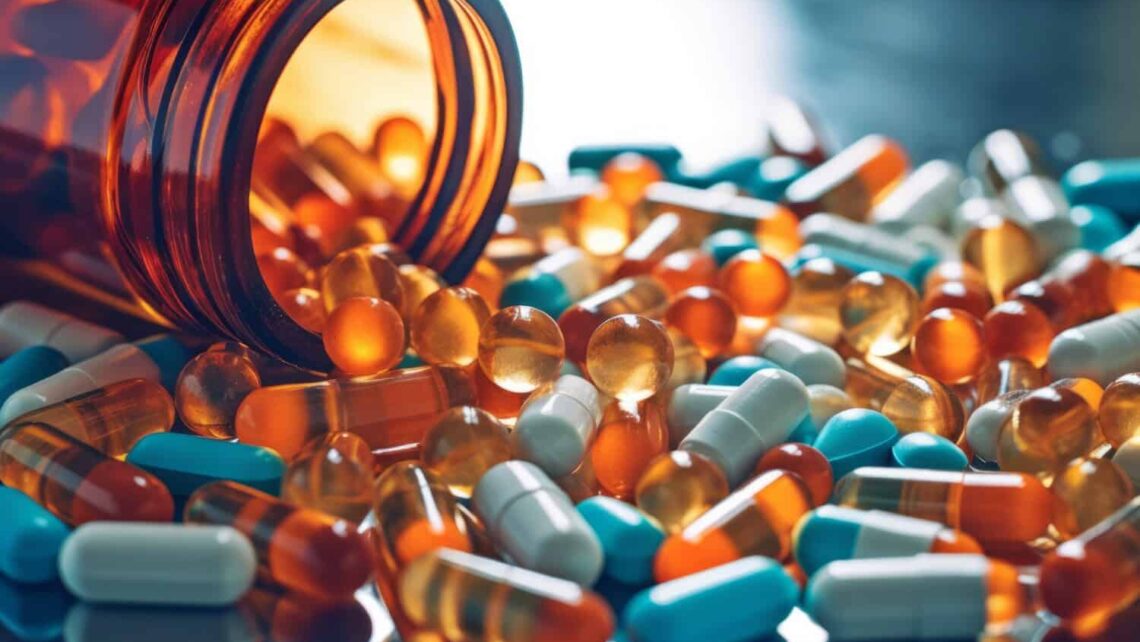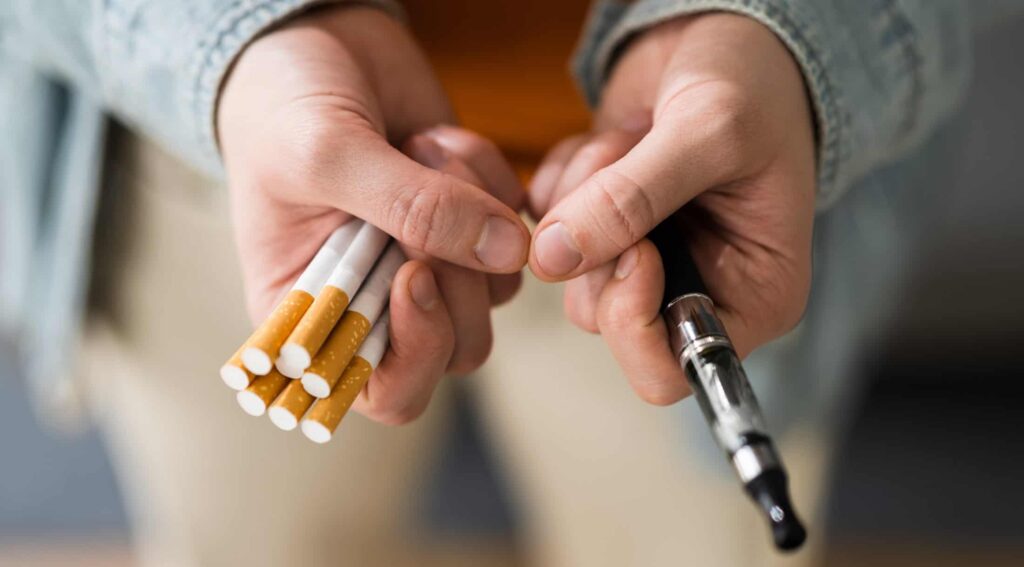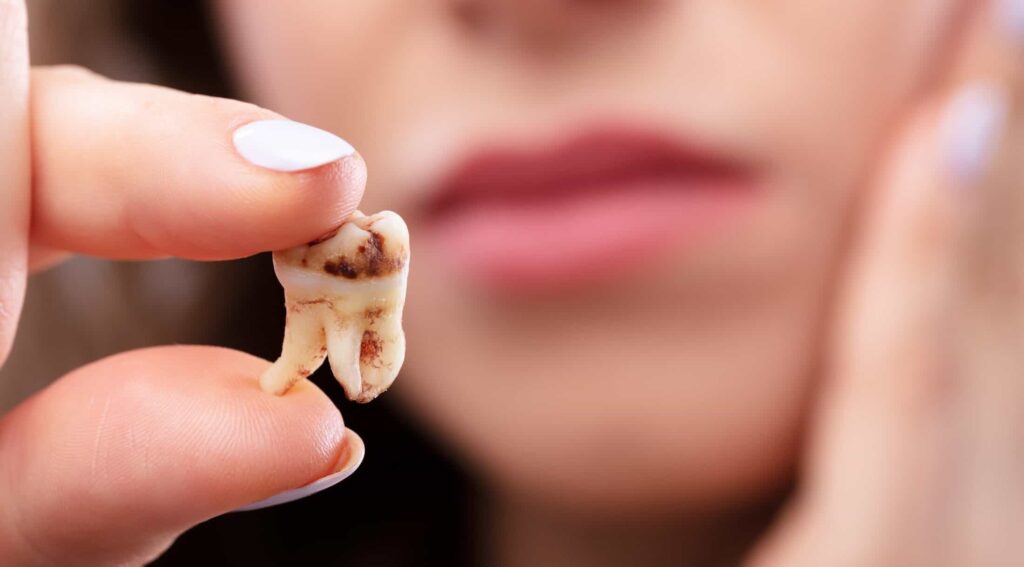It is well known that heavy drug and substance use can wreak havoc on a person’s health, including damage to the lungs, heart, brain, and stomach. However, many people are not aware of the effects of drugs on dental health. Studies have shown that individuals with drug use problems have worse dental health than others, which can include tooth decay and gum disease.
Which Drugs Affect Dental Health?
Regular use of drugs runs the risk of causing significant and permanent tooth damage. Some drugs may also carry high risk to our oral health, even if we may not consider them drugs. A wide range of drugs and substances can directly damage teeth and gums.
Alcohol: Alcohol is made from fermented sugars with the addition of more sugar after the fermentation process. Alcohols are acidic in nature and lead to a faster buildup of plaque resulting in tooth decay. Although they are known to increase appetite in moderation, they also cause digestive problems such as acid reflux which wears away teeth.
Tobacco: Tobacco is well known to cause oral cancers. It can also cause dry mouth and lead to gum disease, bad breath, and tooth damage.
Marijuana: Marijuana is associated directly with dry mouth and can cause mouth or throat cancer. The dry mouth called cottonmouth, damages enamel.
Prescription and OTC drugs: Many types of common drugs can cause tooth decay and damage when taken long term. Some of these are aspirin, antihistamines, prescription asthma medications, oral contraceptives, immunosuppressants, and medicated cough syrups.
Opioids and opiates: Heroin can cause sugar cravings, leading to damaged teeth and their roots. It can also cause teeth grinding which leads to tooth cracks and jaw damage. Injecting opioids can increase the risk of developing fungal or viral infections of the mouth.
Amphetamines: These are popularly known as ‘club-drugs’, some of which include ecstasy and MDMA. These can cause users to grind their teeth, leading to tooth cracks and jaw problems. They also cause dry mouth and dehydration.
Methamphetamine, also called ice, crystal meth, glass, shards, or puff causes severe tooth decay in a very short time. The term ‘meth mouth’ is used to describe the extensive damage typically caused by this drug. Methamphetamine is highly acidic and attacks tooth enamel. Other side effects include dry mouth, teeth grinding and jaw clenching.
Cocaine: Cocaine, in contact with teeth can damage the enamel and when rubbed into the gums can cause sores which can become infected. When snorted, it can cause damage to the sinuses and the upper palate, which can lead to a hole between the nose and mouth.
Indirect Effects of Drug Use on Dental Health
Drug use can also indirectly affect dental health by interfering with oral hygiene habits. For example, people who use drugs may be less likely to brush and floss their teeth regularly. They may also be more likely to smoke, which can stain teeth and increase the risk of gum disease and oral cancer.
Dental Problems from Drug Use
Poor oral hygiene can cause many dental health problems, from cavities and tooth sensitivity to advanced gum disease. It is important to know the signs and symptoms of gum disease so you can see a dentist.
Some of the symptoms from drug use are:
Tooth Decay: Tooth decay is the most common oral health problem caused by bacteria that feed on sugar and produce acids. These acids attack tooth enamel, leading to cavities.
Gum Disease: Gum disease is an inflammation of the gums and tissues that support the teeth. It is caused by bacteria that build up on the teeth and gums. This can also be an indication of something more serious, such as diabetes. Diabetes can reduce the body’s ability to fight bacteria.
Dry Mouth: Dry mouth is a condition in which the salivary glands do not produce enough saliva. Saliva is important for keeping the mouth clean and moist. Dry mouth can increase the risk of tooth decay and gum disease.
Tooth Grinding: Tooth grinding is a condition in which people grind their teeth together involuntarily. This can damage tooth enamel and lead to tooth sensitivity and pain.
Oral Cancer: Oral cancer is a type of cancer that can occur anywhere in the mouth, including the tongue, lips, gums, and cheeks. Drug use, especially tobacco use, can increase the risk of oral cancer.
How to Prevent Dental Problems from Drug Use
The best way to protect your dental health from the effects of drug use is to avoid using drugs altogether. However, if you do use drugs, there are several things you can do to minimise the damage to your teeth and gums:
- Brush and floss your teeth regularly, even if you don’t feel like it.
- Avoid sugary drinks and snacks.
- See a dentist for regular checkups and cleanings.
- Talk to your dentist about any concerns you have about your dental health.
If you are struggling with drug addiction, there are several resources available to help you get treatment. Treatment can help you break your addiction and improve your overall health, including your dental health.
Conclusion
Drug use can have a significant negative impact on dental health. However, there are many actions to protect your teeth and gums from the effects of drug use.
Want to book an appointment?
Book online by clicking here. Call our friendly team on 3390 6100 or email us.










0 Responses
With proper care and support, people can mitigate the negative impacts of drug use and maintain healthy smiles for a lifetime. I appreciate this content.
Wish to see much more like this. Thanks for sharing your information!